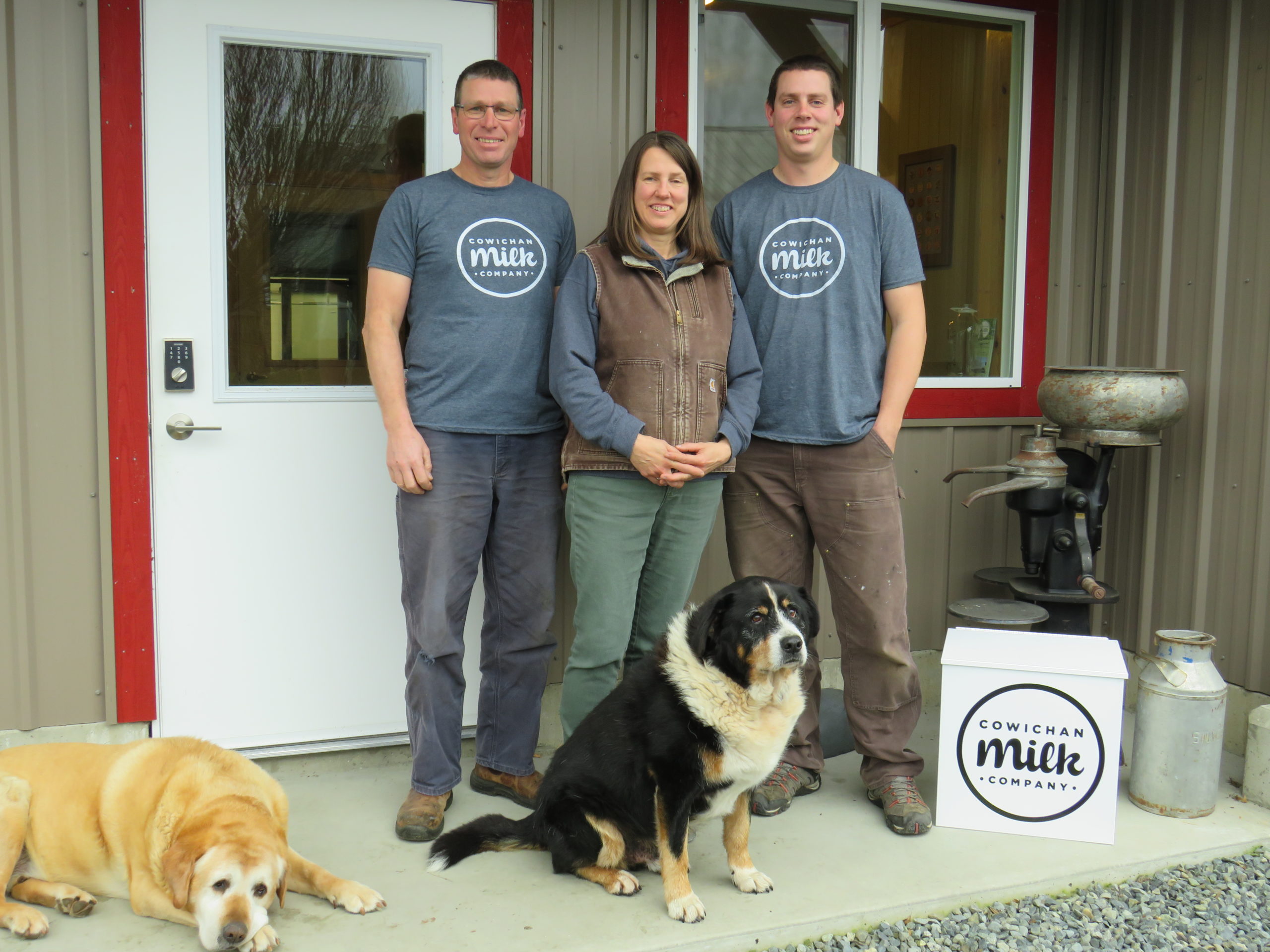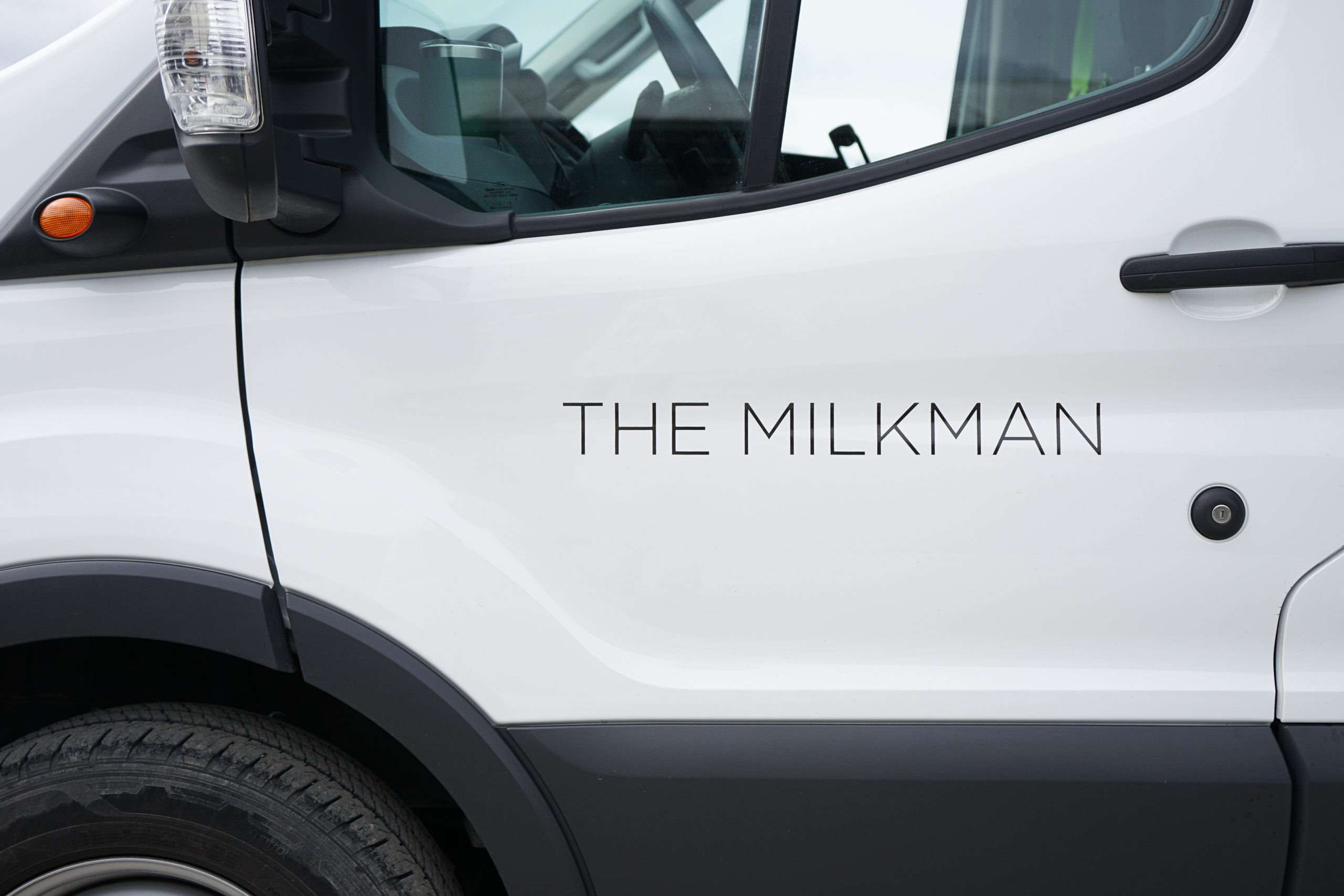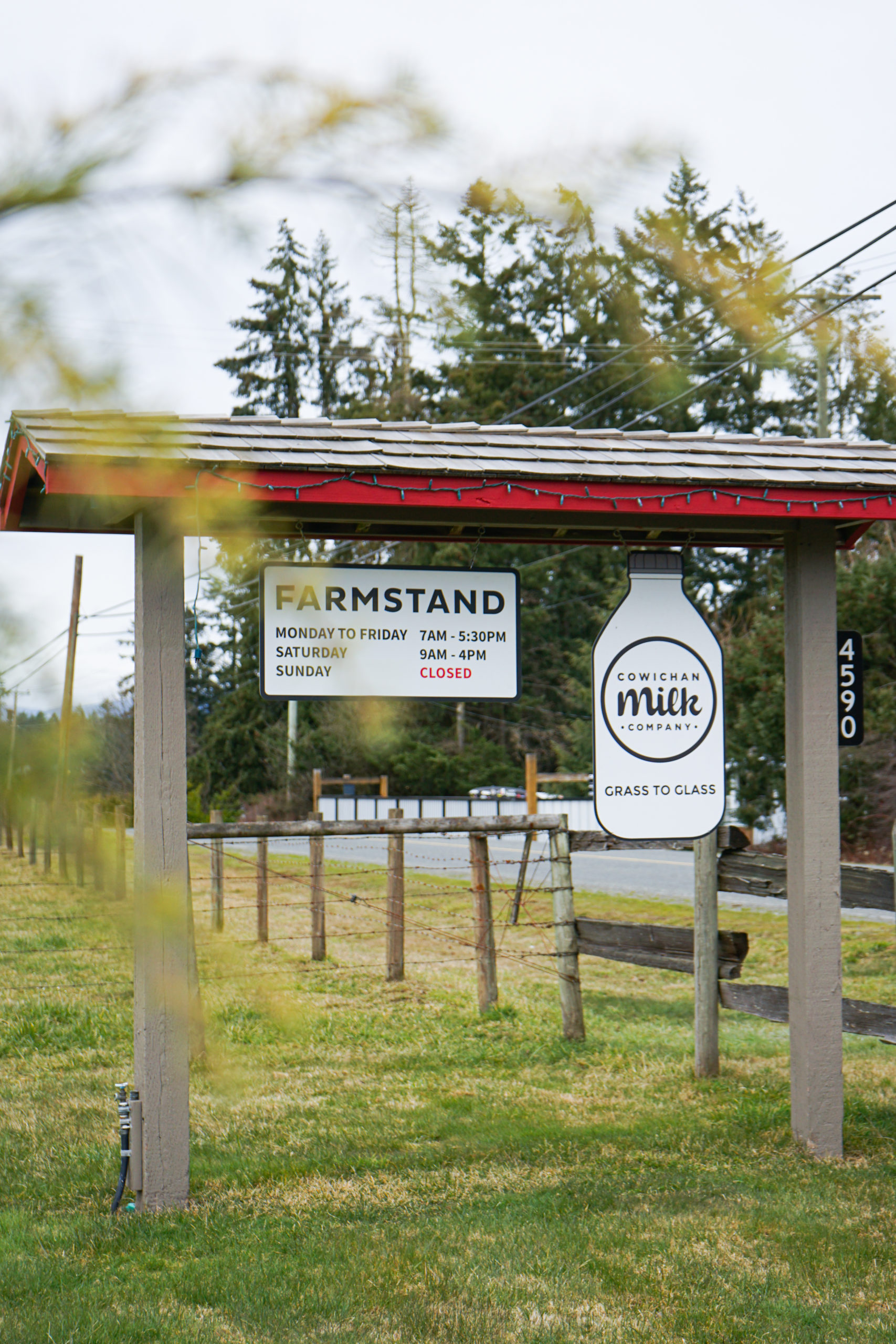
Sometimes, an old-fashioned way of doing things is the right model for modern times.
Each week, more than 700 local families get their milk delivered in glass bottles to their door by milkmen and milkwomen employed by the Cowichan Milk Company. It’s a rarity these days, according to co-owner Margie vanBoven.
”We’re the only one in B.C. that I know of to actually do it all the way … the actual dairy farmer who milks the cows, bottles and delivers it to the door,” she says.
VanBoven says that they didn’t anticipate such rapid growth when the small dairy farm started the home delivery of milk in October, 2019. “Although it was part of our business model, we had no idea that it would be our main source of getting our milk out to the community,” she says.
The delivery model has proved so popular that the Cowichan Milk Company also now offers hundreds of food products from local producers. VanBoven says, “In some ways we were prepped for COVID to happen.”
A way for a small dairy to support two families
In 1993, vanBoven and her husband Ben bought the 50-cow dairy farm located south of Duncan from his parents. About a decade ago, their son Matthew wanted to join the family business. But it didn’t seem possible, vanBoven says, because while milk prices used to be high enough to support two families, prices have failed to keep pace with increases in the costs of land and supplies.
“All the prices go up but nobody likes to see their milk price go up,” she explains. “A 50-cow dairy farm does not support two full-time incomes. … It’s just too small; there’s just not that much cash flow in a farm our size.”

As a result, for several years Matthew had to go away for a job each winter. “We had to do something,” vanBoven recalls. “Because we could not afford to get bigger, it was like ‘Okay, now you have to come up with an idea that will work to make the farm viable.’”
The idea to bottle their own milk had always been in the back of their minds, she says. They often would get requests to sell their milk directly to people, but couldn’t because it is illegal in the province to sell raw (unpasteurized) milk. Instead, their small family dairy farm, like many others, sold all of its milk to Island Farms.
In 2012, the vanBovens started looking into how best to sell bottled milk, a lengthy process that included visits to small bottling plants in Ontario and the States. Seven years later, in September 2019, they were ready to launch the Cowichan Milk Company.
For the first month, bottled milk was only sold at their farmstand at 4950 Koksilah Rd. as well as by a handful of local retailers, vanBoven says. She adds that while home delivery wasn’t something they planned to offer right away, they soon changed their minds and began delivery in October 2019.
It’s a good thing they didn’t wait much longer.
A $2 deposit is added to the price of the milk, which customers get back when they return their bottles. But when the COVID-19 pandemic hit, the stores that carried the dairy farm’s milk stopped selling it because they couldn’t take back the bottles due to safety protocols.

“Within a matter of a few days we were out of all stores,” vanBoven recalls. “So then the only places people could get our milk was the farmstand or home delivery. … Home delivery took off like crazy. There were so many people who were either self-isolating or just didn’t want to go shopping.”
For a while, the dairy farm’s delivery capacity couldn’t keep up with demand, and they had to put some people on a waitlist, vanBoven recalls. “That was the hardest when people called us and they were self-isolating or they were high risk, and we just could not serve everybody,” she says. Eventually, they were able to get everyone off the waitlist.
From grass to glass
Despite growing demand for their milk, including interest in home delivery from Victoria residents, vanBoven says they plan to stay a 50-cow farm.
“Our goal is to remain a small family farm and be able to bottle our milk and provide it to the Cowichan Valley,” she says. “Yes we could get bigger and bigger, but really
at the heart of it we just are dairy farmers who want to put out a good product, and still have the life of a farmer, and not just be managing a big company.”
The 50 cows graze on grass grown at the dairy farm throughout the year, with their diet supplemented by some purchased grains and alfalfa. Their milk is vat pasteurized at 63 degrees Celsius, which vanBoven says is a lower temperature than at most large operations. Although their pasteurization process is more labour- and time-intensive, she says it’s worth it because the end product is healthier and tastier.
“Our goal was to sell to the community milk that tastes as close to what fresh cow’s milk is,” she says. “This pasteurizing method we believe does that. It also retains more of the good aspects of milk — the enzymes, the good bacteria.”
Some of the milk is homogenized by passing it through a filter to break down fat molecules. The rest is not homogenized, or “cream-top.”
The milk gets bottled onsite twice a week. VanBoven, who grew up in Duncan and recalls her mother getting milk delivered to the home in cartons, says that milk tastes better in bottles that keep it “colder, fresher.” The bottles are reused about 30 to 50 times before they get recycled, she says.
Delivering more than milk
At first, the home delivery program offered just milk as well as eggs from a local farm. “That was basically all we were going to do,” vanBoven recalls. “Then we started adding a little bit more because our customers were asking for different things, so we were like, ‘Sure, we could do that.’”

She explains that with the advent of COVID, even more local farmers and food producers asked if the Cowichan Milk Company would carry their products. “We decided, ‘Hey, this is what the community needs right now.’ So we keep adding products that are either local to the Cowichan Valley or Vancouver Island.”
The operation is similar in this way to the Cow-Op, a co-operative online farmers’ market, which has also been thriving during the pandemic. The products available for home delivery from the Cowichan Milk Company range from local meats and baked goods to condiments and pre-made meals. VanBoven says that the aim is to offer all the basic groceries for home delivery.
She says that the operation requires more infrastructure than initially anticipated, including storage for products such as baked goods and fresh vegetables that are delivered to the farm at least twice a week. However, because things are always coming in and going out, she says, “We don’t need as much room as what you would think.”
How home delivery works
When people sign up for home delivery, a software program identifies whether they’re in a current delivery area and assigns them a delivery day based on their address. VanBoven says that her daughter Amy, who also helps with the website, answers customer emails.
Customers can create a recurring weekly or biweekly order or make orders as needed. There is a $10 minimum order and $3 delivery fee for customers between Ladysmith and Shawnigan Lake and a $20 minimum and $5 fee for those in Lake Cowichan and Sahtlam.

Deliveries go out four days a week, vanBoven says. Customers are required to set out a cooler with ice packs by the front door to receive their milk and other products. They can leave out any empty well-rinsed milk bottles next to the cooler, to be returned. According to vanBoven, a few customers don’t order any milk, just some of the other products.
For those not interested in or able to do home delivery, the milk is for sale at several markets and cafes in the region as well as the farmstand, where people can buy Cowichan Milk Company products but not items from other producers that are available for home delivery. The farmstand is open Monday through Saturday and runs on the honour system.
“In the farmstand, there’s a sign that says ‘self-serve, we trust you,’” vanBoven says. “So many people have commented on that; they just love coming because we trust them.”
Eventually, they hope to sell all their milk in bottles, she says. But for now, some of the dairy farm’s milk continues to be picked up by Island Farms milk trucks. As a result, vanBoven says they have the capacity to add more home delivery customers.
Looking ahead, she says it’s hard to gauge how well the home delivery model will fare post-pandemic. “It definitely seems like where society is going right now with things; there’s so much online shopping,” vanBoven says. “Whether they stay with it, we don’t know. We’re hoping we just provide a really good service, and that people are thrilled with the amount of local products they can get, and the convenience of getting it delivered to their house once a week.” [end]
Editor’s note, March 9, 2021: A previous version of this article stated that the price of the milk includes a $2 bottle deposit. In fact, the bottle deposit is added to the price of the milk.
This Food For Thought article is made possible in part with funding from the Real Estate Foundation of BC and Journalists for Human Rights/RBC. Their support does not imply endorsement of or influence over the content produced.



